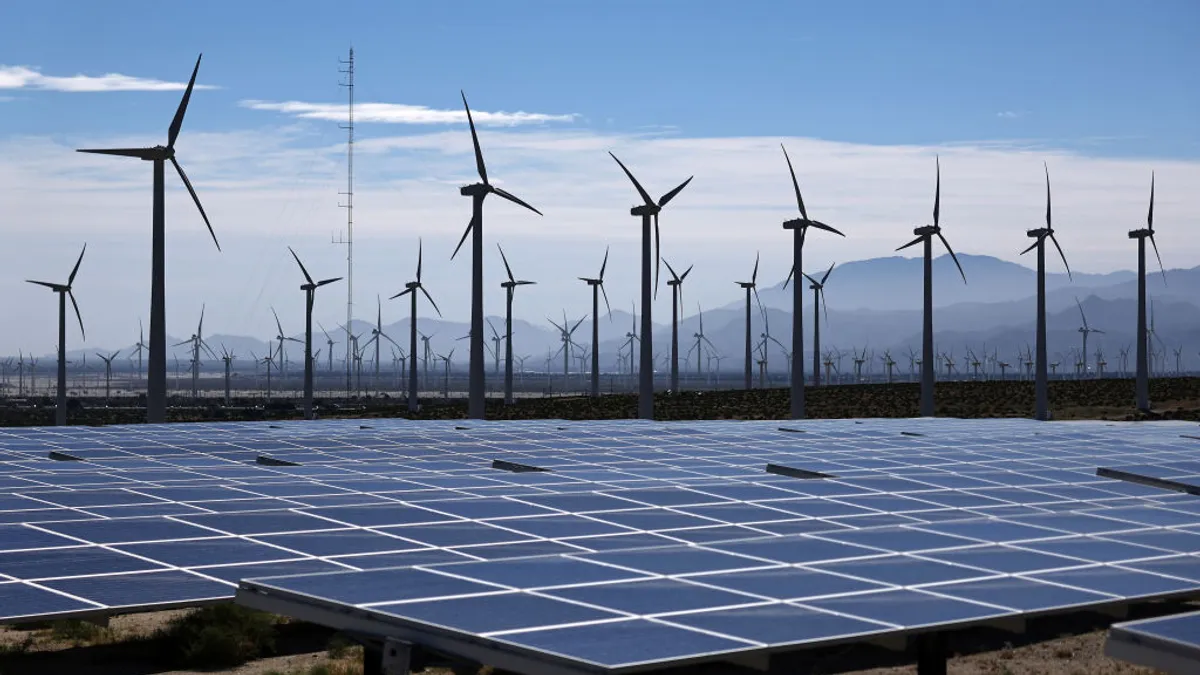Dive Brief:
-
North Bay Hydro Services and S&C Electric Company completed the installation of Canada's first utility-scale microgrid last week in North Bay, Ontario.
-
Two 265-kW natural gas turbines, 7 kW of rooftop solar and a 2-kW solar flower will deliver combined heat and power to North Bay's Community Energy Park, which serves a group of community spaces including a sports arena and aquatic center.
-
The microgrid is capable of operating in island mode, meaning the community has a reliable, safe facility in the event of a widespread grid outage. Stakeholders and developers say the project has generated interest among other communities and entities seeking more resilient, small-scale systems.
Dive Insight:
North Bay officials say the Community Energy Park — which combines co-generation with a smart grid, battery and electric vehicle charging station — is an important resilience measure in the face of more frequent extreme weather. At the same time, developers and grid operators say microgrids are gaining traction in Canada.
"There are other communities now looking at what we've done ... not just for the carbon footprint, but also the safety of the communities," Tanya Vrebosch, North Bay's deputy mayor, told Utility Dive.
Ontario has experienced multiple major outages, including the August 2003 Northeast Blackout and December 2013 ice storm, which underscored the need for reliable electricity to keep residents safe.
"More and more homes and businesses — and utilities for that matter — are concerned about the impacts of weather on energy supply and security," Katherine Sparkes, director of innovation, research and development at Ontario's Independent Electricity System Operator (IESO), told Utility Dive. "So you're seeing more and more interest in development of small scale, distributed storage, energy efficiency, building automation and generation as well."
Sparkes said that more distributed generation on the grid is a good thing from IESO's perspective, because it means more competition and opportunities for sale to the wholesale grid, which will drive prices down for consumers. IESO provides ratepayer funding for projects that either directly lower costs for consumers via efficiency gains or distributed generation, or technologies that "support improved reliability or increased competition," Sparkes said.
IESO provided provincial-level funding for North Bay's project through its grid innovation program. Other funding was provided by the city of North Bay (CA $261,000) and the federal government of Canada (CA $750,000), according to the North Bay Nugget.
The project will provide 87% of the Community Energy Park's electricity requirements and 50% of its electrical heating needs from on-site generation. Gas burned in the generators is provided by a pipeline, according to project co-developer S&C Electric Company.
S&C told Utility Dive that the project not only pushes the boundaries of the electrical industry, but also provides concrete benefits to the community in terms of critical infrastructure and efficiency. These attributes have generated a "great deal" of interest in the project from other communities, according to Paul McMullen, vice president of S&C's Canada business unit.
"I think it's important to highlight that we see this as really a glimpse of the energy networks of the future," McMullen said. IESO's Sparkes agreed, and noted that two builders are currently involved in other microgrid projects in the Toronto area: Mattamy Homes in Markham and Marshall Homes in Pickering. IESO has been involved directly with the latter project.
S&C also built a microgrid recently in the U.S. for customer Ameren, near the University of Illinois.
"We're actually hearing quite a bit from home builders and developers right now…[who] want to get their home to market as quickly as possible," Sparkes said. This means that when utilities are slow to connect new developments, builders are looking at what they can do themselves in terms of energy efficiency, new generation and storage, according to Sparkes.
Correction: An earlier version of this article incorrectly identified one of the Toronto subdivisions. Mattamy Homes is working on a microgrid project in Markham.













